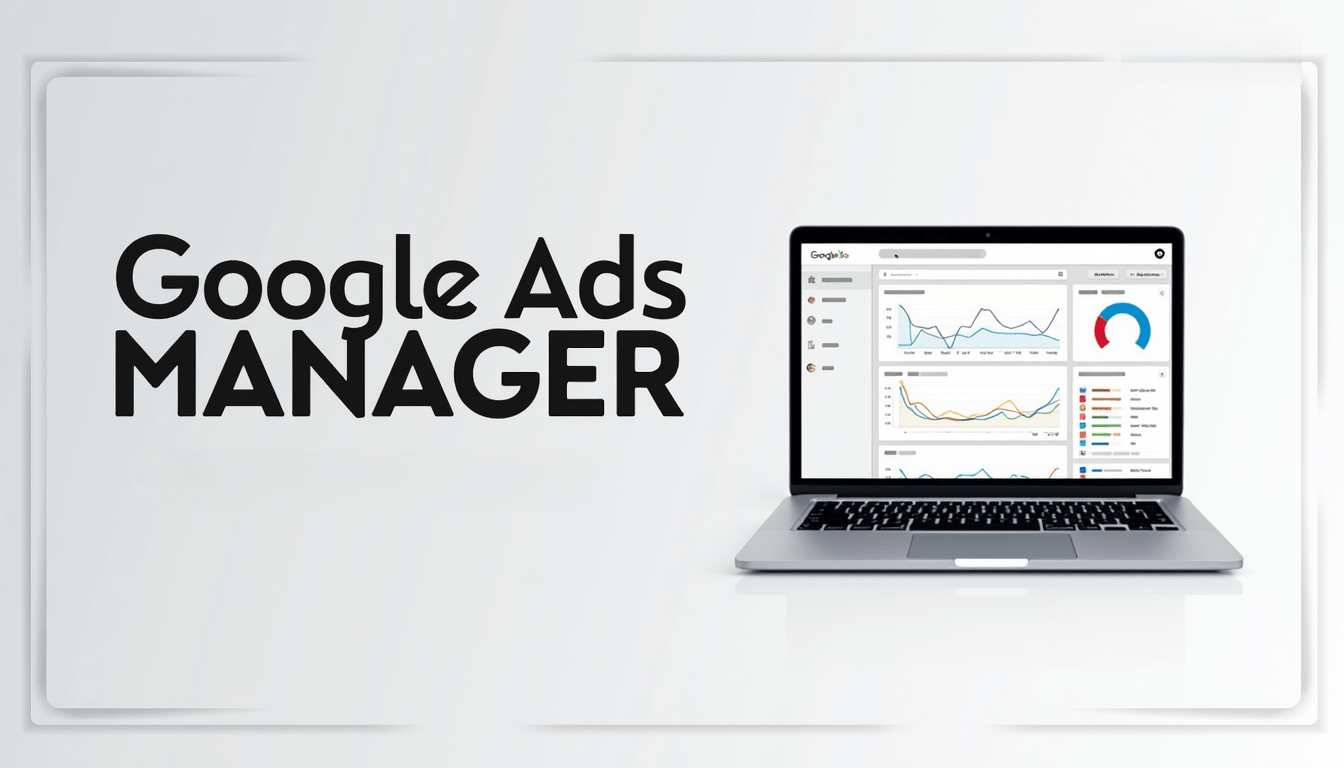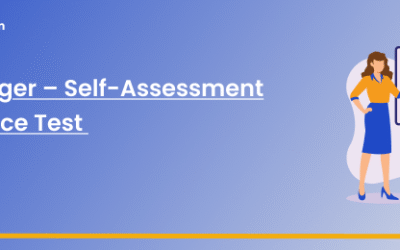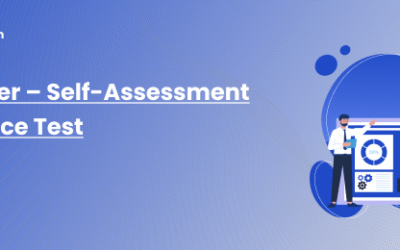Managing Google Ads is no small feat, and understanding the various roles involved is crucial for success. Google Ads Managers play a significant part in crafting effective advertising campaigns, driving traffic, and boosting sales.
In this post, we’ll break down the main responsibilities of a Google Ads Manager. You’ll learn who fills this role, what they do, and why it’s essential for businesses aiming to thrive online. Whether you’re looking to hire a Google Ads Manager or stepping into the position yourself, knowing these key aspects will guide you toward achieving your marketing goals.
For a deeper understanding of Google Ads, check out this helpful video: What is Google Ads? How Google AdWords Works in 5 Minutes. To read more about related strategies, visit Blog – Management Legend.
Understanding the Role of a Google Ads Manager
A Google Ads Manager is essential for maximising the potential of online advertising campaigns. They wear many hats, each playing a crucial role in ensuring that campaigns are successful. Below are the primary responsibilities that outline their everyday tasks.
Campaign Strategy Development
Developing a solid advertising strategy is the backbone of a successful campaign. Google Ads Managers start by understanding the specific goals of the business, whether it’s increasing sales, generating leads, or enhancing brand awareness. They assess the target audience, industry trends, and competitors. This comprehensive understanding informs the approach they take, ensuring that each campaign is tailored to resonate with its intended audience. They may ask themselves questions like, “What makes my product unique?”, “Who are my best customers?”, and “What do I want them to do?”.
Keyword Research and Selection
One of the first steps in launching a campaign is effective keyword research. Google Ads Managers use tools to identify keywords that potential customers are likely to search for. The aim is to choose keywords that maximise reach while aligning with the business objectives. This includes determining short-tail and long-tail keywords that not only have high search volumes but also exhibit relevance to the products or services offered. Proper keyword selection can drastically improve visibility and drive quality traffic. This process often involves analysing both the competitiveness and search volumes of potential keywords.
Budget Management
Budget management is another vital responsibility. Google Ads can be costly, so effective allocation of the advertising spend is critical. A skilled Google Ads Manager sets daily and monthly budgets, monitors spends, and adjusts as necessary to stay within limits. They analyse metrics like cost-per-click (CPC) and return on investment (ROI) to ensure that every pound spent contributes to the business’s goals. Managing the budget can involve pausing underperforming ads or reallocating funds to better-performing campaigns, always aiming for that optimal balance.
Performance Analysis and Reporting
After the campaigns are live, Google Ads Managers dive into performance analysis. They regularly review metrics such as click-through rates (CTR), conversion rates, and quality scores to evaluate how well the ads are performing. Producing reports for stakeholders is also part of the job. These reports summarise insights about campaign performance, allowing for informed decision-making. Clear and transparent reporting helps stakeholders understand the value generated by their investments and what adjustments might be necessary moving forward.
Continuous Optimisation
The digital advertising space is constantly changing, which necessitates ongoing optimisation of campaigns. Google Ads Managers analyse performance data and adjust various elements, such as ad copy, targeting methods, and bidding strategies. This continuous feedback loop allows them to identify what works and what doesn’t. Strategies might include A/B testing different ad formats or targeting different audience segments to improve engagement and conversions. The goal here is simple: keep refining campaigns to ensure they perform at their best.
For further insights on Google Ads management strategies, check out What Is Google Ads Management? Optimise Your Campaigns.
Skills Required for Google Ads Managers
In the fast-paced world of online advertising, Google Ads Managers need a diverse skill set to excel. Their role requires a blend of analytical thinking, creativity, technical know-how, and effective communication. Below are the essential skills that make a successful Google Ads Manager.
Analytical Skills
Strong analytical skills are a must for interpreting complex data. Google Ads Managers constantly sift through metrics to assess campaign performance. They need to be comfortable with numbers and capable of drawing insights from them. This includes evaluating click-through rates, conversion rates, and overall return on investment. With these insights, they make informed decisions about where to adjust campaigns. Asking questions like, “What trends are emerging?” or “How can we improve our targeting?” helps them stay ahead. Without robust analytical skills, deciphering data would be nearly impossible.
Creativity and Innovation
Creativity plays a vital role in crafting compelling ad copy and striking visual content. Google Ads Managers must think outside the box to engage audiences and differentiate their brand. This could mean using humour in ads, playing with unique visuals, or presenting innovative solutions to common problems. A captivating ad can stop a potential customer in their tracks and compel them to click. The challenge lies in balancing creativity with the need to meet marketing objectives. What fresh ideas can you bring that will resonate with your target audience?
Technical Proficiency
Technical proficiency is essential in managing Google Ads effectively. Google Ads Managers should know various tools and platforms. Understanding how to use Google Analytics allows them to track user behaviour and campaign performance. Familiarity with different bidding strategies and ad formats is also crucial. They may need to troubleshoot issues as they arise, so a strong grasp of technical elements ensures smooth operations. The ability to adapt to new tools or updates within the Google Ads platform is equally important.
Communication Skills
Effective communication skills are crucial for success in this role. Google Ads Managers frequently interact with clients, team members, and stakeholders. They need to present ideas clearly and share campaign progress in an understandable manner. Whether it’s a formal presentation or an informal chat, being able to articulate thoughts can lead to better collaboration and decision-making. Building strong relationships through effective communication can result in smoother project execution and greater client satisfaction.
Adaptability to Trends
Adapting to changing digital marketing trends is essential for staying relevant. The online advertising landscape is ever-evolving, with new trends and technologies emerging regularly. Google Ads Managers must keep up with updates to algorithms, changes in user behaviour, and shifts in market dynamics. They should be proactive about incorporating new strategies into their campaigns, such as embracing AI tools or exploring new social media platforms. Staying informed and flexible allows them to take advantage of opportunities as they arise. Are you aware of the latest trends that can impact your marketing efforts?
For an enhanced understanding of managing costs in online advertising, check out What Is CPC Management? Maximise Online Advertising ROI.
Tools and Resources for Google Ads Managers
Managing Google Ads effectively requires a mix of reliable tools and resources. These resources empower Google Ads Managers to enhance their campaigns, streamline processes, and ultimately drive better results. Here’s a comprehensive look at some indispensable tools in the Google Ads landscape.
Google Ads Platform
The Google Ads interface is user-friendly and packed with features designed to optimise advertising efforts. It allows you to create campaigns, set budgets, and choose from various ad formats such as search ads, display ads, and video ads. The dashboard provides insights into performance metrics like click-through rates and conversions, making it straightforward to assess how well your ads are performing. The platform also offers tools such as automated bidding options and a Keyword Planner that assists in selecting the right keywords to target your audience effectively.
Keyword Planning Tools
Keyword research is vital for reaching potential customers. There are several tools available to help identify the best keywords for your campaigns:
- Google Keyword Planner: A free tool that provides keyword ideas, search volume data, and competition levels.
- Ubersuggest: Offers keyword suggestions along with SEO insights and trends.
- SEMrush: A comprehensive tool that includes keyword tracking, domain analysis, and competitor insights.
- Ahrefs: Particularly useful for analysing the performance of keywords and discovering related terms.
Using these tools can significantly enhance your keyword strategy, ensuring your campaigns remain relevant and effective.
Analytics and Reporting Tools
Analytics play a crucial role in evaluating campaign performance. Here are some tools that can elevate your reporting capabilities:
- Google Analytics: This is an essential tool that offers in-depth insights into user behaviour and campaign performance. It allows you to track conversions, analyse traffic sources, and understand how users interact with your site.
- Data Studio: Use this tool to create custom reports and dashboards that visualise your data from Google Ads and other sources.
- Supermetrics: Automates reporting by pulling data into spreadsheets or dashboards, enabling you to streamline your analysis process.
These analytics tools provide the necessary data to make informed decisions and refine your campaigns.
A/B Testing Software
A/B testing is an essential component of ad optimisation. It allows you to compare two versions of your ad to determine which one performs better. Some available A/B testing tools include:
- Google Optimize: This tool integrates with Google Analytics and allows you to run experiments on your website and ads.
- Optimizely: A robust platform for conducting A/B tests across various digital channels.
- VWO: Offers comprehensive A/B testing capabilities along with user insights to improve user experience.
Utilising A/B testing can lead to higher engagement and conversions by identifying the most effective ad elements.
Third-party Marketing Tools
Several third-party marketing tools enhance the capabilities of Google Ads managers. These tools can help in various aspects of campaign management, from automation to competitive analysis:
- AdEspresso: Streamlines ad creation and management across multiple platforms, including Google Ads.
- WordStream: Provides guidance and insights on PPC campaigns along with tools for optimisation.
- SpyFu: Useful for tracking competitor strategies and keywords, giving you insights into industry trends.
Incorporating these tools can provide a significant advantage in managing and scaling Google Ads campaigns effectively.
To explore more about optimising your campaigns, check out What Is Google Ads Management? Optimise Your Campaigns.
Common Challenges Faced by Google Ads Managers
Google Ads Managers encounter several hurdles while executing their roles. Each challenge can disrupt the effectiveness of campaigns, making it essential to understand and address them. Let’s look at some of the common issues.
Ad Fatigue
Ad fatigue arises when audiences become overwhelmed or bored by seeing the same ads repeatedly. This can lead to decreased engagement, lower click-through rates, and ultimately poor campaign performance. When your target audience loses interest, your ads may get ignored completely. To combat ad fatigue, Google Ads Managers should continually refresh ad creatives, rotate new messaging, and consistently analyse performance metrics. Instead of asking, “Why isn’t this ad working?”, they should consider, “What fresh content will draw the audience back in?” Regular updates can rejuvenate interest and boost results.
Market Competition
The level of competition in your market can significantly impact your advertising strategy. As more businesses vie for the same audience, the cost of bids may rise, stretching budgets thin. This competition necessitates careful planning and forecasting. Google Ads Managers must regularly evaluate competitors’ tactics and adjust their campaigns accordingly. It’s crucial to ask, “How can I differentiate my approach?” Whether it’s revising the target audience or enhancing ad copy, finding ways to stand out is vital.
Keeping Up with Algorithm Changes
Google frequently updates its algorithms, which can affect how ads are displayed and which strategies work best. For Google Ads Managers, staying informed about these changes is critical. Adjustments can impact ad visibility, costs, and overall strategy. Managers may find themselves asking, “Have I adjusted my campaigns to comply with the latest changes?” Regular training and staying connected with industry news can help ensure they remain ahead. Adaptability is key in this fast-moving environment.
Client Expectations Management
Aligning client expectations with campaign realities is often a significant challenge. Clients may have high hopes for immediate results, which can be unrealistic. Google Ads Managers need to communicate effectively about what can be achieved, based on campaign data and market conditions. Questions such as “How can I educate clients on realistic timelines and results?” become essential. Regular updates and transparent reporting can help manage client expectations and build trust over time.
Data Overload
Google Ads generates a substantial amount of data, which can sometimes feel overwhelming. Managers face the challenge of analysing this data to extract actionable insights. Without proper interpretation, valuable details may go unnoticed, leading to missed opportunities for improvement. To tackle data overload, Google Ads Managers should focus on key performance indicators that align with their campaign goals. They could ask themselves, “What specific metrics matter most to this campaign?” By narrowing the focus, it becomes easier to interpret the data and make informed decisions.
For insights on managing campaigns successfully, check out What Is Google Ads Management? Optimise Your Campaigns.
Conclusion
Understanding the roles and responsibilities of a Google Ads Manager is essential for any business seeking to improve its online advertising efforts. They are responsible for everything from campaign strategy to performance analysis, ensuring ads reach the right audience effectively.
If you’re looking to enhance your marketing strategy or considering a career as a Google Ads Manager, exploring these roles can provide invaluable insights. What challenges do you face in your advertising efforts? Engaging with these questions and seeking further knowledge can help you navigate the complexities of Google Ads successfully. Thank you for reading, and feel free to share your thoughts on this topic.
Further Reading
For those eager to expand their knowledge, there are various resources that can enhance understanding of Google Ads and the role of a Google Ads Manager. Diving into these topics not only solidifies your grasp on advertising strategies but also prepares you for real-world challenges. Below are some recommended readings and resources.
Understanding Google Ads Management
Gaining insights into Google Ads management strategies will significantly improve your campaigns. Understanding the fundamentals can set you on the right track. You might want to explore articles that break down effective tactics and tips for optimising advertising efforts, such as:
- What Is Aviation Management? Oversee Airline Operations – A resource that discusses key management techniques, which can be analogous to managing advertising strategies.
Google Ads Tools and Features
Knowing the tools available within Google Ads can elevate your performance. Familiarising yourself with various functionalities will enable you to optimise your campaigns effectively. Check out guides on using Google Ads tools, including the Keyword Planner and bidding strategies, to capitalise on your ad spend.
Case Studies and Examples
Real-world case studies provide practical insights into Google Ads management. These stories reveal what works in actual campaigns and illustrate lessons learned. Look for documentation or articles that showcase successful Google Ads implementations, demonstrating how different strategies lead to success.
Forums and Community Discussions
Joining forums or community discussions can be beneficial for bouncing off ideas and learning from others’ experiences. Engaging with fellow marketers can help you grasp different perspectives and discover new strategies moving forward.
Through these resources, you can gain a deeper understanding of Google Ads, the various roles involved, and how to navigate the complexities of the advertising environment. Staying informed and continuously learning are essential components of success in the ever-evolving world of online marketing.




